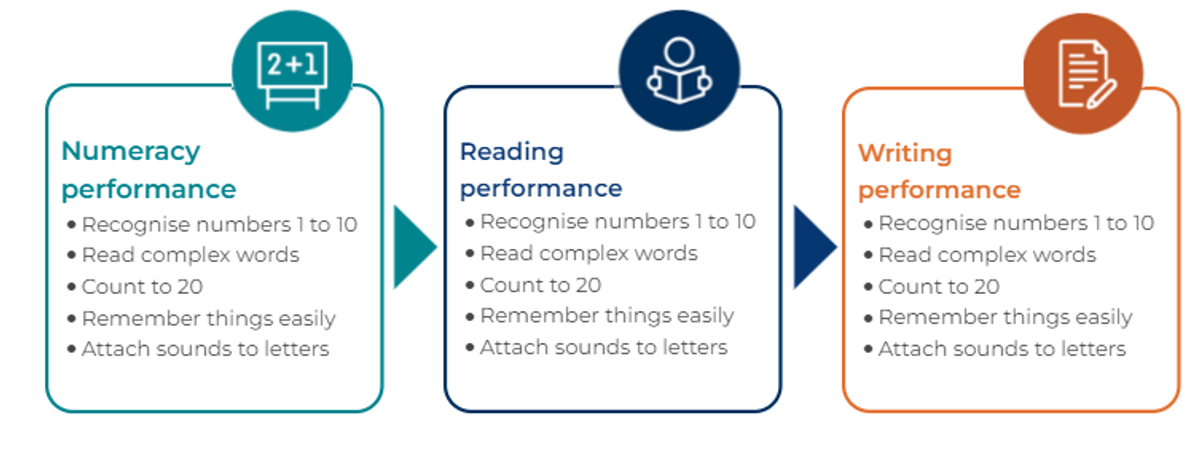Learning and Teaching

Learning and Teaching at our school
On Tuesday our new Preps for 2024 came to St Louis for their first orientation session. It was a privilege to be able to interact with the new students and their families. After speaking to the parents about Learning and Teaching at St Louis, I came across this latest research article and thought I would share a snapshot of some of the key findings from AERO (Australian Education Research Organisation, September 2023) which summarises and provides recommendations for the key building blocks that are linked to successful performance in reading, writing and numeracy performance.
Research Summary
Which skills are important for future literacy and numeracy learning?
How the Australian Early Development Census data reveal the building blocks for future reading, writing and numeracy performance (AERO, September 2023)
NAPLAN performance in Year 3 is correlated with 8 early Language and Cognitive Skills
A set of 8 skills from the Language and Cognitive domain were shown to have a strong correlation with NAPLAN performance in Year 3 across Numeracy, Reading and Writing.
Our analysis showed that children entering primary school who had acquired these skills and capabilities were more likely to have future academic success throughout the primary years.
These 8 skills were: Recognise numbers 1 to 10; Read complex words; Count to 20; Remember things easily; Attach sounds to letters; Use one-to-one correspondence; Write his/her own name in English; Aware of writing directions in English.
The skills that predict later learning are not necessarily the hardest to achieve, highlighting the importance of foundational skills for future learning
Of the 26 AEDC Language and Cognitive Skills, the top 5 found to have the strongest correlation with high NAPLAN performance were not always the most difficult skills. This finding highlights 2 things:
- The importance of the foundational skills for future learning success
- The fact that not all children start school with these foundational skills. Both of these findings are relevant for teachers as they work to establish and further develop children’s foundational skills.
Figure 2: Strongest indicators of future Numeracy, Reading and Writing performance
Summary
The early years of a child’s life, from birth to age 8, are a crucial period for learning and development. High-quality early childhood education and care (ECEC), and continuity from ECEC into school, provide children with a strong foundation for lifelong learning. Understanding how language and cognitive skills develop during this period of a child’s life can help policymakers and education practitioners optimise the support offered to children. This research has sought to understand how children’s learning and development progresses in the early years of school by examining the skills and capabilities children have on entry to school and how those relate to later literacy and numeracy achievement.
Michelle Barron

